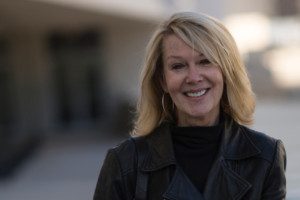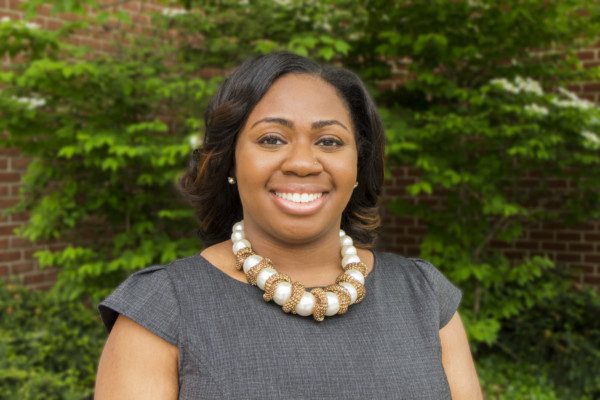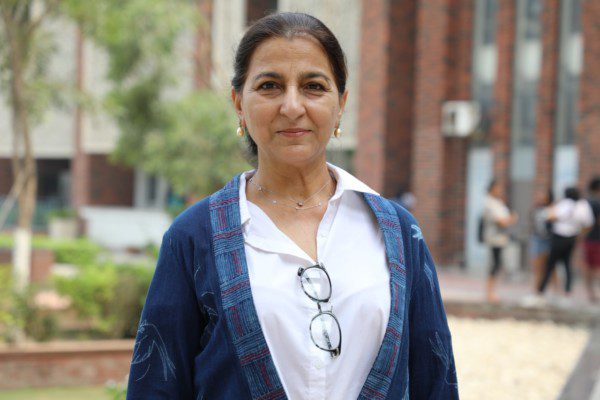Statistically speaking, students at Minerva University are far from average. The San Francisco based school is need-blind and merit-based, admitting less than 2% of those who apply. Eighty percent of the students receive financial aid. Only 12% are American. The rest come from 70 separate countries.
While Minerva students begin their education in California, they go on to study in six major world cities outside the U.S. where, according to Minerva’s Founding President Teri Cannon, “They develop a global network and deep intellectual understanding that prepares them to solve the world’s most pressing problems.”

Teri Cannon, Founding President of Minerva University
This tall order, given to an elite group of students, is the end goal of an innovative endeavor in higher education called “The Minerva Project,” that began with private capital by businessman Ben Nelson in 2012. With 28 students in its first class, it was not so much a school as it was an initiative to reform higher education in ways in which it was not performing well, such as equipping graduating students with long-lasting learning and critical intellectual skills, as opposed to information that may be outdated and easily accessible. Its framework involves assessment of learning, continuous feedback, high expectations and personal and professional growth.
Minerva, which was incubated at Keck Graduate Institute, one of the Claremont College, became separately accredited as an independent university in June 2021 and now has over 600 students and 400 graduates. Like its peer universities, it provides a range of student services including mental health counseling, a critical and complex component of college life regardless of an institution’s profile. The question for Cannon, who had led the development of global operations and student affairs before becoming Minerva’s first president, was: How do you establish a mental health program that accommodates exceptional students at one of the most innovative schools in the world?
“At Minerva, our approach to mental health and wellbeing is integral to our students’ educational experience and we needed someone like Will who thought differently about college student mental health to design and run our programming,” said Cannon.Cannon said it involved finding a director with diverse experience and enough of an appetite for experimentation to match Minerva’s highly original culture. She eventually found one in Will Meek, Ph.D., the former Director of Counseling at Brown University, who had a national reputation for implementing non-traditional practices and policies.

At Brown, Meek created the Flexible Care Model in response to long appointment wait times and a widely divergent set of student issues that he felt could be addressed with innovations to the counseling center model. Now operating in many schools throughout the country, the Flexible Care Model has several key components that differentiate it from traditional counseling, including same-day access, variable session lengths, and a focus on the issues a student is experiencing in the moment. Most sessions are under 30 minutes and do not involve lengthy in-take processes. This enables the same-day access and assessment and allows more students to be seen more frequently, while those with a greater need receive more comprehensive care.
Meeks said the “come in as needed” availability of the Flexible Care model accommodates the help-seeking habits of students who come to Minerva, many of whom have never previously sought mental health services.
You are having these new experiences with people who are different from you. And they are going to make you all the more capable and confident as a young adult.
“Instead of stuffing people into this westernized, mental health care system and sort of making them comply with it, especially folks that have no sense of it, we created a really wide-open system that allows any kind of help-seeking pattern to work,” he said.
Meek has three staff people operating in India, Argentina, and San Francisco that support the 600 enrolled students, making for a favorable student to counselor ratio. Many of the students Meek and his staff see are not native English speakers; some come from places in the world where there is no mental health system at all. One of the first actions Meek took when he became director in 2020 was to establish basic mental health literacy for all students.

“We teach people the basics of maintaining good mental health, understanding if there are issues, and encouraging them to seek help if they need it, which can be the challenging part because there are a lot of cultures in the world where seeking help for mental health is not the first thing you do.”
Despite cultural barriers, Minerva students do seek help at about the same rates as other college students, with a spike in appointments during their first year and a decline as they adjust to their surroundings and, in Minerva’s case, their unique experiences. Meek said the global campuses on which students repeatedly arrive and adjust add to their stress as well as their grit.
“Moving to seven different cities in the world in four years is really stressful,” he said. “Some of their experiences are immediately great, others are really hard. You are in a four-year, totally immersive program where your only connection to home comes during breaks.”
Meek said these challenges are part of Minerva’s learning process. “There’s a mental health component to this,” he said, referring to the services he provides. “But it’s fundamental to the learning of the whole institution that you are having these new experiences with people who are different from you. And they are going to make you all the more capable and confident as a young adult.”
Both Meek and Cannon agree that these experiences only strengthen the resilience Minerva students arrive with; many rising from adverse situations to be admitted into the program.
Cannon said the heightened awareness of changes taking place in the world is deeply ingrained in the culture where students are taught to think independently and towards the future. But she is quick to point out that the kind of global preparedness Minerva hopes to build in its students is not stoked by academic competitiveness or hierarchical social structures.“These will be the leaders most prepared to take on real world problems,” said Cannon.

“At Minerva, every student is high-performing and valued for their hard work and results,” she said. “We de-emphasize competition. There is no dean’s list, no high-stakes tests, no sports teams, sororities or fraternities.”
This approach synchronizes well with the school’s holistic and cross-contextual framework that supports growth and development in five areas, starting with self-management and wellness and including: intercultural competency, interpersonal engagement, professional development, and civic responsibility.
Meek said Minerva is a close community where focusing on diversity is the point, not a platitude. He believes its selection of students from so many different means and backgrounds enables an authentic culture of inclusion and belonging not often found on American campuses.
“Traditionally, colleges and universities were established for wealthier students and have adjusted to be more welcoming,” he said. “Minerva started from day one trying to build a community that
would be very inclusive across the financial spectrum with special attention paid to folks with less financial privilege.”

Minerva U. is off and running after the pandemic setbacks created a hybrid model where some of the students had to study remotely. Even then, Meek said, the students and professors found a way to make it as engaging as possible, working in teams and thinking out loud. Asked if she thought Minerva’s unique culture could positively impact what students everywhere are reporting in terms of anxiety and depression, Cannon said, “Students here support and help each other and that is a very good place to start.”




